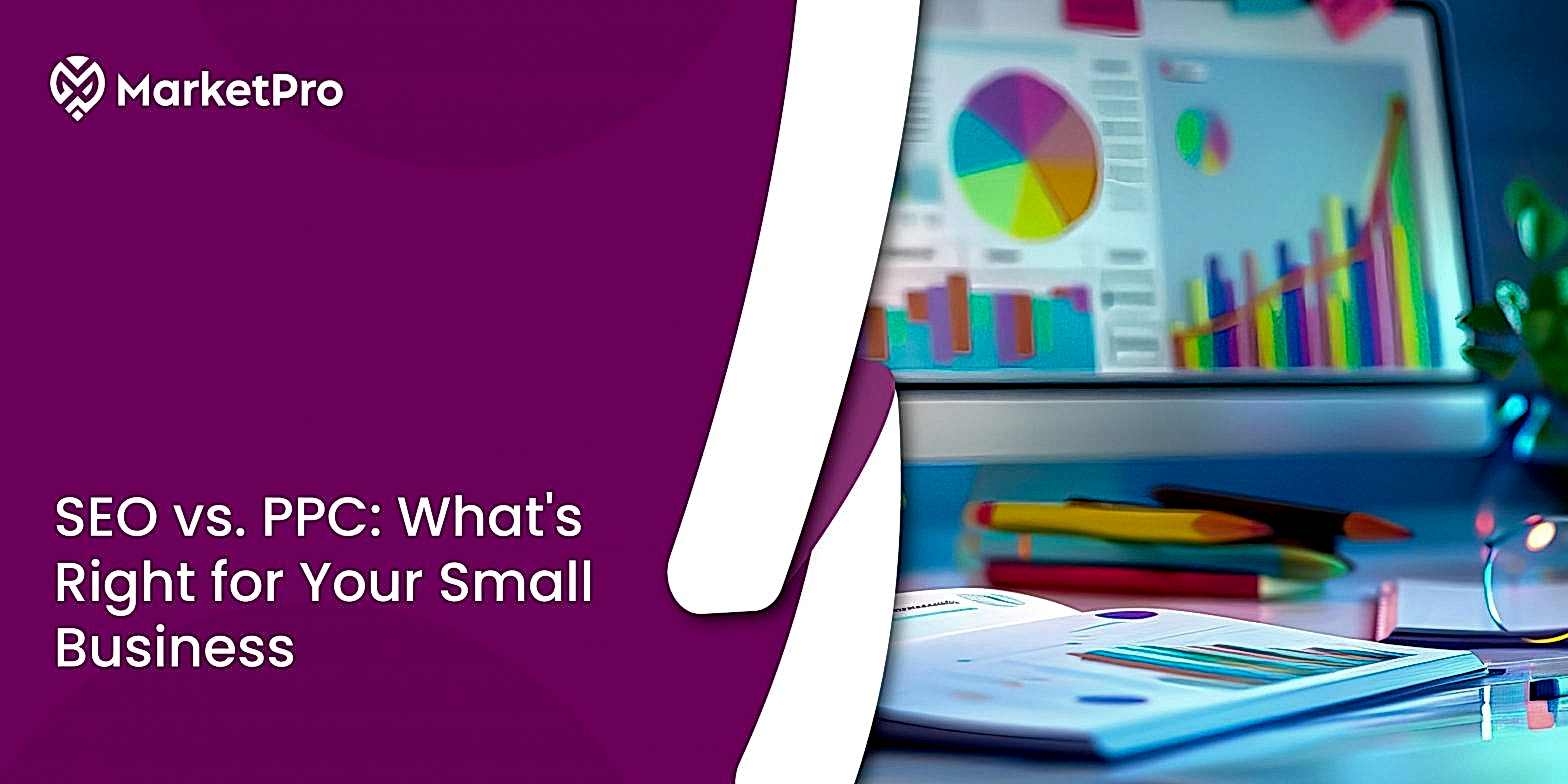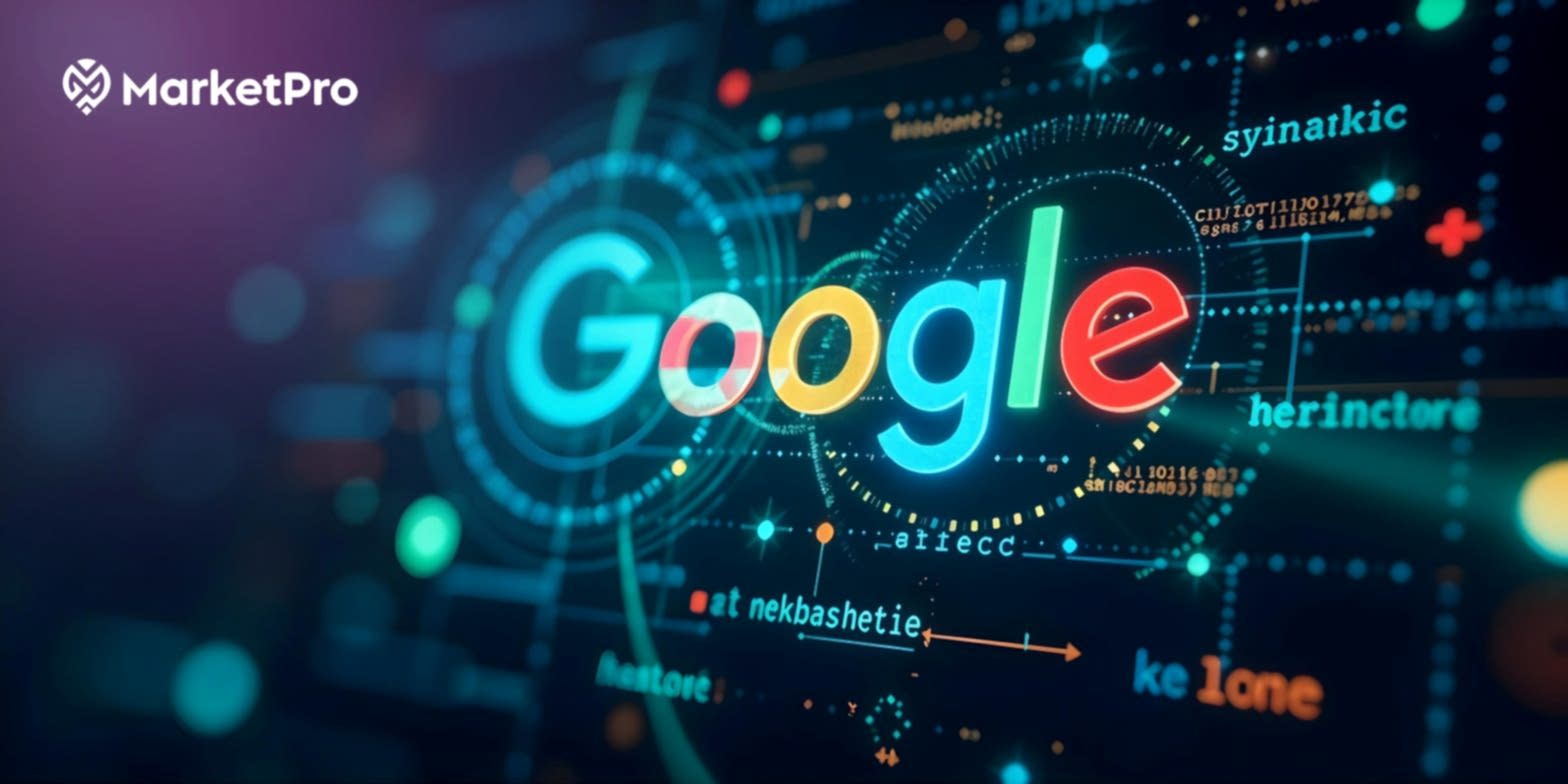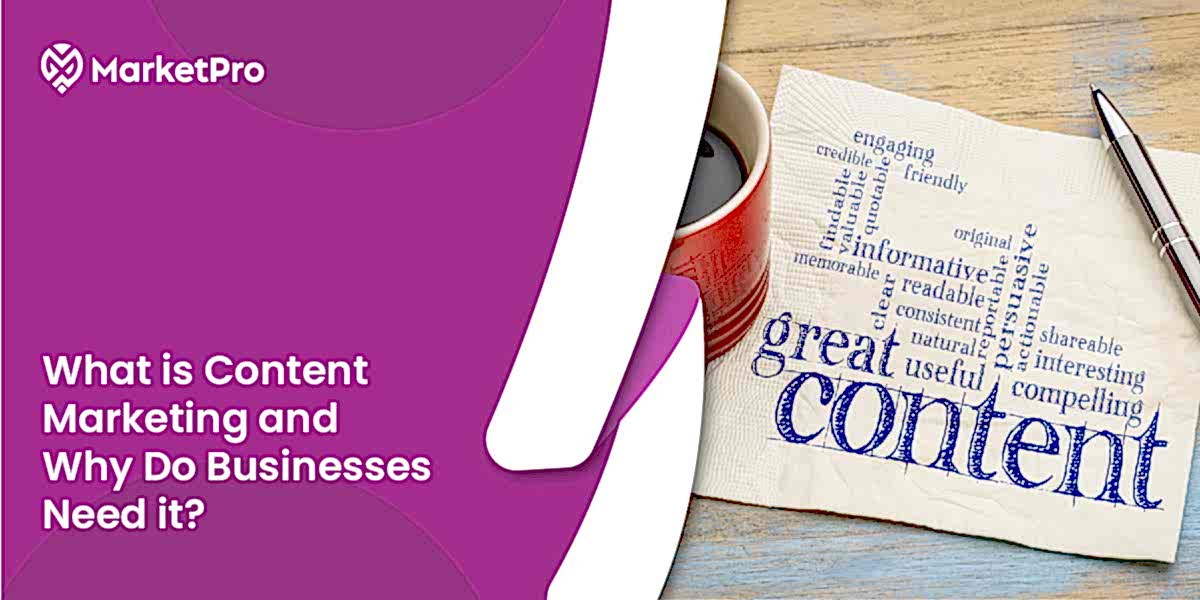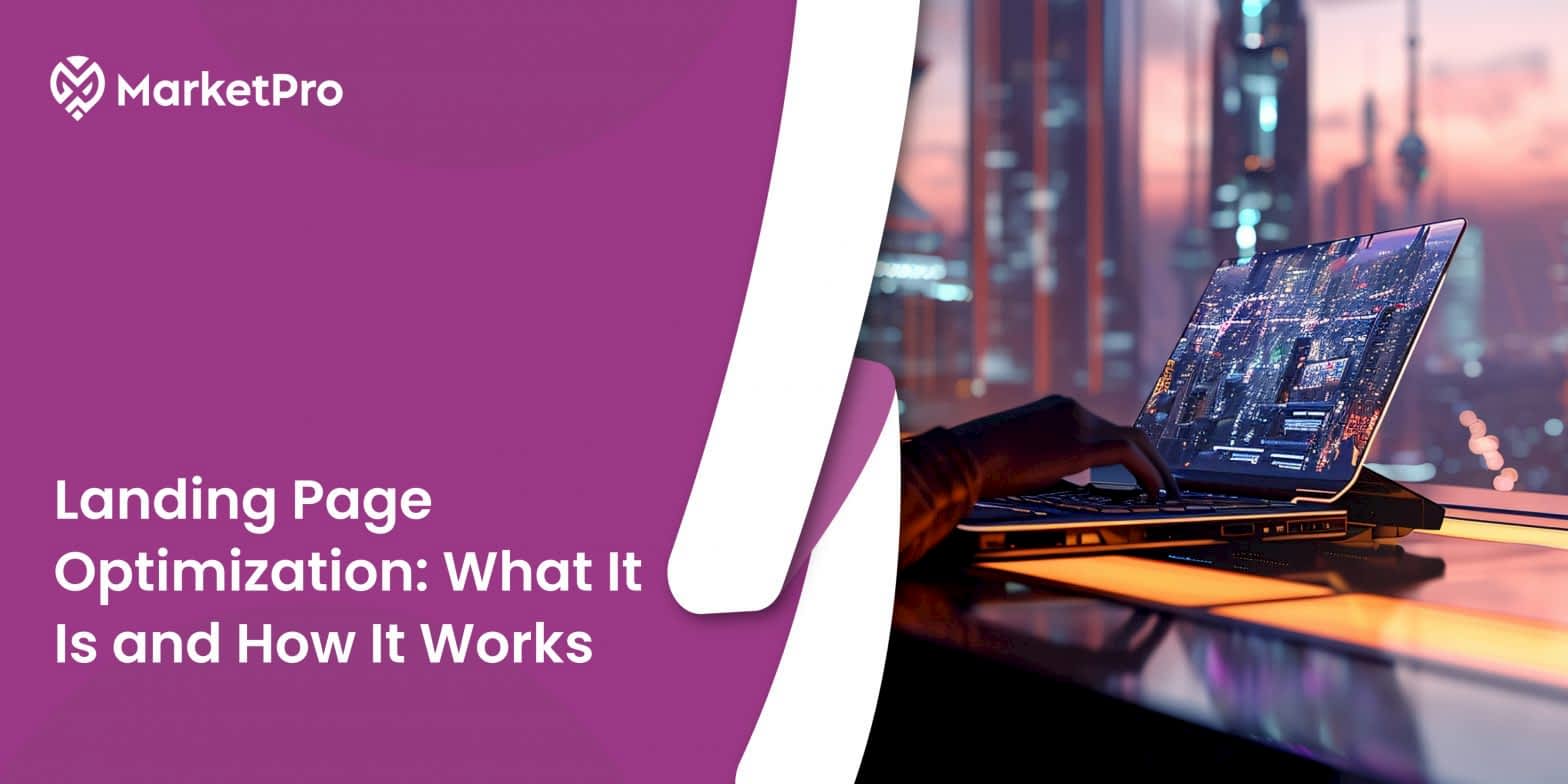How do you stand out in a crowded marketplace?
Small businesses often face the pressure of marketing their brands effectively and with a limited budget. With larger brands dominating the space, it’s important for small business owners to make every dollar count.
Enter one of the biggest marketing dilemmas—SEO vs. PPC. Both strategies have their benefits and drawbacks, but which one offers the best bang for your buck?
In this blog, we’ll break down SEO vs PPC services to see which path will bring you the most success.
SEO vs. PPC: A Quick Breakdown
The key difference between SEO and PPC is that SEO gives organic, long-term results, while PPC focuses on paid, short-term results. However, these strategies involve more than just the basics. Here’s a quick breakdown.
| Feature | SEO | PPC |
| Cost | Lower, upfront | Higher, varies per click |
| Time to See Results | Long-term | Immediate |
| Longevity | Long-lasting | Temporary |
| Control | Limited Control | Full Control |
| Click-Through Rate | Higher | Lower |
| Conversion Rate | Higher | Varies |
| Brand Awareness | Builds Slowly | Immediate but disruptive |
SEO

Search Engine Optimization (SEO) focuses on improving your website’s visibility in search engine results. Think of it as building a solid foundation for your business.
SEO is a long-term strategy that needs consistent effort, but the results are incredible. Over 50% of marketers believe that SEO has a large positive impact on businesses.
There are several parts to an SEO strategy:
- On-page SEO: This involves fine-tuning the content and structure of your web content. The goal is to have your site rank higher on search engines through smart keyword usage, strong meta descriptions, etc.
- Off-page SEO: This strategy makes your website look more trustworthy, and it does so through link building. You can also increase authority with social media signals.
- Technical SEO: Here, the focus is on behind-the-scenes aspects of your site, such as its structure, loading speed and overall performance. Checking off these points will ensure search engines can easily crawl and index your page.
- Local SEO: This strategy aims to make you more visible in your local area. With local SEO services, your business is more likely to show up in local searches.
- Content Creation: Creating relevant and meaningful content that encourages audience engagement and helps your site rank better.
SEO: Pros and Cons
Pros
- Cost-effective: You don’t have to worry about breaking your budget with SEO.
- Gain Trust: Higher organic ranking builds more trust with your users.
- Sustainable Growth: Strong SEO leads to sustainable long-term growth and visibility.
Cons
- Slow Results: It can take time to see significant results in your rankings.
- Continuous Effort: Requires ongoing work on content, backlinks, and site optimization.
- Changing Algorithm: Search engines like Google frequently update their algorithms, which can affect your site ranking.
When to Choose SEO
For small businesses that want to build a strong online presence over time, organic SEO services are the way to go. It’s especially beneficial if:
- You have a smaller budget but want to improve your search engine ranking.
- You want your target audience to find you easily.
- You’re okay with slow and steady growth.
- Your industry isn’t too crowded, making it easier to climb the rankings.

Local SEO: A Superpower for Small Businesses
In the battle between SEO vs. PPC, having Local SEO is like having a secret weapon. Imagine you run a small Italian restaurant competing with fancy, high-end restaurants. How do you stand out? The answer is Local SEO.
In your strategy, you should:
- Optimize your website to appear in local searches. If someone searches “Italian Restaurants near me”, your business shows up first. Did you know “near me” searches have skyrocketed by 400%? That’s an astounding opportunity for growth.
- Use geofencing tactics.
- Create or improve your Google My Business Profile.
- Engage with your clients on social media.

With Local SEO, you can go from being an unknown brand to the go-to business in your area.
PPC
Imagine you’re a retail store owner, and instead of waiting for people to find you, you place ads in strategic places to attract customers. That’s Pay-per-click advertising (PPC).
In PPC, businesses bid on keywords to display their ads on top of search engines. In a nutshell, when a user clicks on your ad, the business pays a fee. This is a powerful strategy since 90% of internet users see Google Ads.
Here are some key things to know about PPC:
- PPC Campaigns: These are custom campaigns designed to reach targeted audiences. These are also specific keywords that drive traffic to your site. Think of them as commercials that find and speak directly to your customers.
- Google Ads: The go-to platform for PPC, where businesses can place their ads directly in Google search results. The goal is to attract customers when they’re searching for related products or services.
- PPC Strategy: This involves carefully planning and managing your ad campaigns to get the most value for your money. It’s about making smart decisions to ensure that every dollar spent on ads brings the best possible result.
PPC: Pros and Cons
Pros:
- Instant Visibility: Ads appear immediately once your campaign is live, bringing quick traffic.
- Targeted Ads: You can target specific keywords, demographics, and locations.
- Flexible Budgeting: You control how much you spend and can adjust your budget as you wish.
Cons:
- Cost: You pay for each click, which can add up, especially in competitive industries.
- Short-Term: Traffic stops when you stop paying, so there’s no long-term benefit.
- Ad Rejection: Some users may skip ads and focus only on organic search results.
When to Choose PPC
If your business needs quick results, PPC marketing is the way to go. They provide immediate results and get you in front of your audience fast. PPC is ideal if:
- You’re launching a new product or service.
- You want to stand out in a competitive industry.
- You have a flexible budget for multiple long-term campaigns.
- You want to target specific demographics or regions quickly.

The Real Dealbreaker: Price, Ranking, and Conversions
While SEO and PPC are both powerful strategies, using both can be tricky for small businesses. For most business owners, the choice between the two often comes down to price, ranking and conversions.
- Cost: In general, SEO is more cost-effective in the long run. Once your website ranks well, you can enjoy long-lasting traffic. On the other hand, with PPC, you need to keep spending a lot of money to attract customers—the more difficult the keyword, the higher the cost.
- Ranking: SEO takes time to deliver results, but PPC offers instant visibility. Your ads can appear at the top of search results as soon as your campaign goes live.
- Conversions: SEO typically attracts users who are ready to purchase. However, PPC might display your business but doesn’t guarantee conversion.

SEO vs. PPC: What’s the Verdict?
Small business owners might be tempted to choose either SEO or PPC, but both approaches can be beneficial if you use them the right way.
Combining both SEO and PPC services is a great way to get the best of both worlds and enjoy results that last. Here’s how you can build an optimal strategy to get your business noticed.
- Start with PPC: Launching a new product or announcing a seasonal campaign? PPC is a great option. Gain immediate leads and traffic to your business.
- Maintain Growth with SEO: Now that you have eyes on your brand with PPC, it’s time to maintain this growth. Use a solid SEO strategy to keep customers engaged. This is also a great time to build trust and a strong clientele.
- Scale Back on PPC: As your SEO builds organic growth, you slowly start shutting down your PPC campaigns.
- Check Analytics: With a successful strategy, you’ll have access to loads of useful data that will help you refine future campaigns. You’ll also have a better idea of how much budget to allocate to these strategies.
- Better Brand Visibility: By appearing in both paid and organic search results, your brand can dominate the search engine results pages (SERPs) and increase visibility.

Find Your Digital Marketing Partner in Market Pro
If you want your small business to stand out, a hybrid strategy is a must. PPC will help your brand get noticed, while an SEO strategy will maintain that growth for a long time. But, to gain strong results, you need a trusted digital marketing partner like Market Pro.
At Market Pro, our SEO and PPC experts will work together to create a solid foundation for your brand that boosts your visibility and drives organic, sustainable traffic.
Our SEO management will work on keyword research, on-page/off-page SEO, content creation and more. Market Pro’s unparalleled PPC expertise has generated 117% of business-qualified leads while maintaining a 33% conversion rate for our trusted client. Let us help you achieve your success.
Ready to get your small business noticed? Contact us today to get a free consultation and get closer to achieving lasting results.






